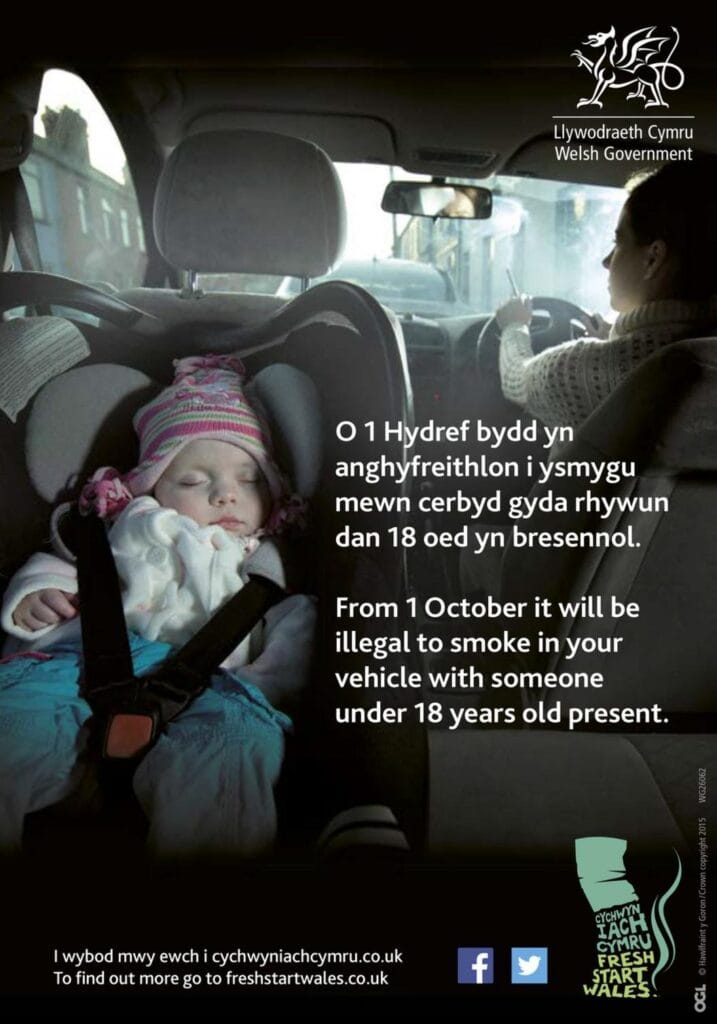
Tiffany, 54, has lived in Cardiff all her life and now calls Llanishen home. She works as a …
Tiffany, 54, has lived in Cardiff all her life and now calls Llanishen home. She works as a …
John Weatherbed from Newport was just 14 years old when he smoked his first cigarette. Like many people …
The Senedd has voted to support the Legislative Consent Motion for the Tobacco and Vapes Bill, marking a …
The Wales Tobacco Control Alliance is calling on Members of the Senedd to back the Legislative Consent Motion …
New findings from ASH Wales’ Annual Adult Population Survey 2025 show strong public support for tougher tobacco laws …
Parents and carers across Wales are facing new challenges when it comes to nicotine. Whether it’s disposable vapes, …
Smoking in a private vehicle when someone under the age of 18 is present became illegal in England and Wales on 1st October 2015. This legislation represents a significant step in protecting children from the harmful effects of second-hand smoke.
Second-hand smoke exposure in cars is particularly harmful, especially for children. Even with windows open, the confined space of a car traps smoke, exposing passengers to high levels of toxins. Children are especially vulnerable as their lungs are still developing, and they breathe more rapidly than adults, increasing their intake of harmful chemicals.
Children exposed to second-hand smoke are at greater risk of respiratory infections, asthma, and ear problems. Studies show that even short exposure in a car can result in significant harm to their developing lungs and immune systems.
Passive smoking in vehicles contributes to numerous cases of illness among children each year, including thousands of GP visits, hospital admissions, and even sudden infant deaths. This preventable harm places a significant burden on families and healthcare systems.
Public backing for this legislation has been overwhelming, with 79% of Welsh adults supporting the ban before its introduction. This widespread agreement reflects a shared commitment to protecting children from harm.
The law introduced in 2015 made it illegal to smoke in a private vehicle carrying anyone under 18. This includes:
Vapes are not included in this legislation.

Your support helps us create impactful campaigns and provide free resources to schools and communities across Wales. Every donation brings us closer to a smoke-free generation.
